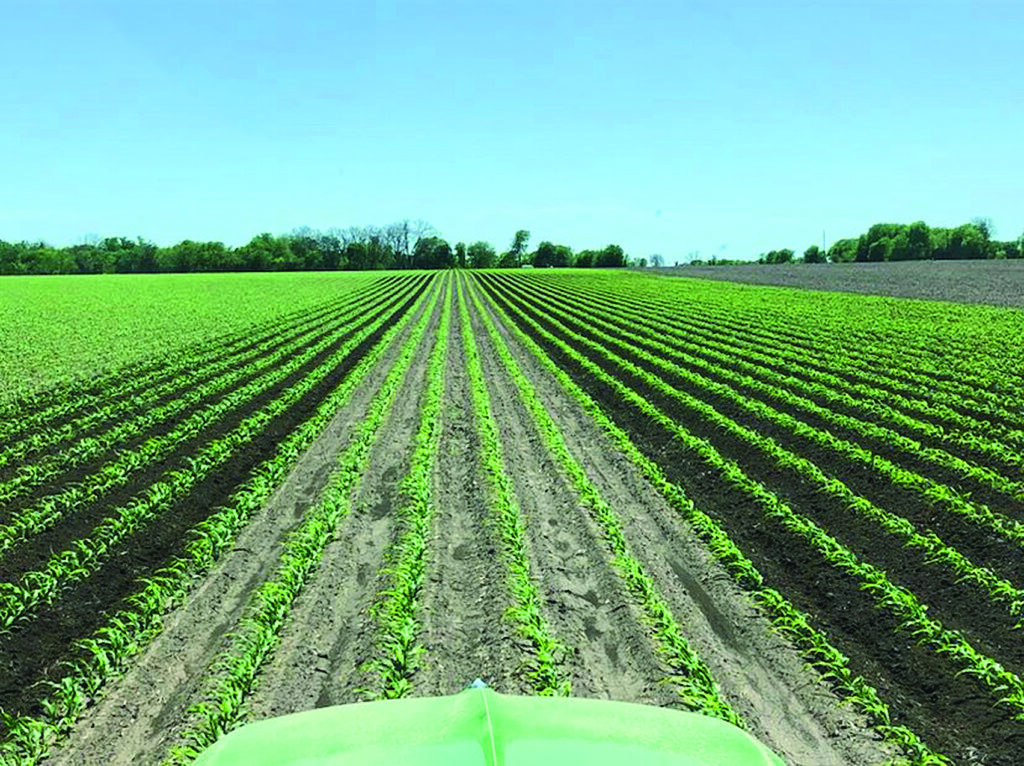
By Kayleen Holder
Editor
The landscape in Medina County and our small towns is changing, and it’s no illusion as fields of cotton and corn become fewer and fewer. In Medina County, over 18,350 acres of farm and ranch land has been developed within the past 10 years, a loss of about 9,000 acres of agriculture land over each five-year period.
Acreage now classified as “Residential” has increased the most–by nearly 13,800 acres in the past ten years.
In the same ten year period, over 3,200 acres has been claimed by the “industrial” industry, with most of this accounted for by the large quarries in Medina County.
Land flagged as “Commercial” has seen the smallest growth acreage-wise (an increase of 232 acres).
The growth of subdivisions and industrial inudustry here has led to substantial increases in tax revenues for the county. According to the last audit, Medina County has approximately a year’s worth of operating funds put away in its reserve “rainy day” account.
On the flip side, rising home and land values has led to a large increase in property tax bills.
Loss in ag production is an issue facing Texas in general right now, with around 250,000 acres of farm and ranch lands being developed each year, according to officials.
According to the Texas Department of Agriculture, Texas ranks first in the nation in the number of cattle and calves, accounting for 13% of the U.S. total.
Texas is the top producer of cotton, hay, sheep, goats, mohair and horses. Some of the state’s top crops are vegetables, citrus, corn, wheat, peanuts, pecans, sorghum, and rice. Experts estimate that, on average, 1 farmer feeds 160 people annually.
The ag industry employs one out of every seven working Texans as well according to the TX Dept of Agriculture.
With Texas being such an important part of food and fiber production, it is drawing some concern.
It wasn’t too long ago, that the USDA held public comment about “lab grown meat”–also called “cell-based” or “cultivated meat” which hit the grocery stores and some restaurants in 2022. Even Texas BBQ brisket is being grown in a lab in Austin, a 2022 news release announced.
In an op-ed by Ag Commissioner Sid Miller this January, he also highlighted the growing number of solar farms and land purchases by China as a concern.
“Texas Agriculture Matters and in 2023 that has never been truer,” said Commissioner Miller.
More on this issue…
In an op-ed last month, State Representative Justin Holland drew attention to this very matter affecting the whole state. “Every year, Texas loses nearly 250,000 acres of land to development. Rural working lands that make up the wide-open spaces definitive of the Texas character are evaporating at an alarming rate. Not only are these lands meant to be enjoyed by Texans, but they work every day to provide the food we eat and the water we drink,” Holland said.
“We must take bold steps to preserve the landscape and culture that makes Texas a great place to live. Texas is home to 7 of the top 15 most rapidly growing cities in the country. Research also shows that 78% of Texas counties will not have sufficient parks in the coming decades. Texas needs additional parks, open spaces and natural habitats to preserve our quality of life, provide food and fiber and clean water, and to support the multibillion-dollar agricultural and outdoor recreation economy,” Holland adds.
In another interview he noted, the state’s success is great, but Texas is having “a very hard time keeping pace with water, infrastructure, transportation, and educational needs.”
“I truly believe that our land is our greatest asset, and it cannot be replicated once it is lost,” Holland said. “That’s why I am proud to introduce landmark legislation in the Texas House calling for the creation of the Texas Land and Water Conservation Fund,” a bill under consideration.
Difficulty of estate taxes and transfers is a common issue, and the tools available
“I work every day with farmers and ranchers who are just looking at ways to make sure they can keep their land and continue to serve our state by providing the food and fiber it needs to continue to grow,” said Chad Ellis, CEO of the Texas Agricultural Land Trust. “Some of these lands have been passed down for generations, and oftentimes families do struggle to pay estate taxes and preserve ownership during transfers. One of the greatest tools we have in the toolbox to help these families is conservation easements.”